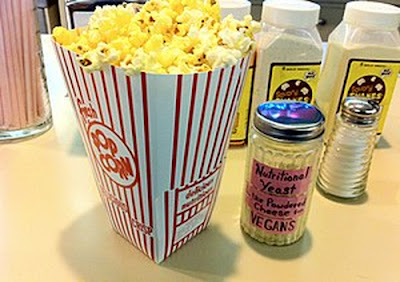Though nutritional yeast is made for people who are trying to eat a gluten-free diet, it is mostly utilized by vegans. Vegans do not eat any type of yeast or fungi, including candida albicans. For them, this ingredient is unnecessary. Although there are recipes for vegans who may want to use it occasionally for bread crumbs, muffins or other baked goods, vegans generally avoid it. This ingredient is also unnecessary when making bread crumbs out of buckwheat flour.
Bread products such as breads, rolls, cookies, tortillas, and pizza crusts are some examples of breads that contain high levels of gluten. These products usually contain a higher level of starch and sugar than other types of breads, which explains why they usually have a high sugar content. Starchy breads contain more calories and fewer nutrients than other breads. In addition, carbohydrates found in breads are usually absorbed very slowly in our bodies and therefore are used up relatively quickly. Though nutritional yeast may contain high levels of nutrients, the nutrients found in whole grains are better for our health and overall well-being.
No nutritional yeast should be used in cooking, because it will not break down or release its nutrients. However, flax seeds and nuts contain the natural substance L-glutamine, which is an excellent source of vitamins A, B-complex, E and D. Flaxseeds and nuts are also good sources of zinc and magnesium, which are all potential health benefits. Flaxseeds are a great source of omega 3 fatty acids. Moreover, flaxseeds contain high amounts of fiber.
Flaxseeds are also a great source of dietary fiber, which can help prevent constipation. They are a great source of vitamin B-12 and may trigger headaches if taken in high doses. Flaxseeds are a great source of magnesium, which may trigger migraine attacks in susceptible people. Magnesium is also a potential source of stress relief.
Yeast flakes that contain a lot of protein and B vitamins are a great source of nutrients and energy for those who need it most. Yeast is a great source of vitamins, minerals, fiber, and proteins that make it a perfect choice for your health food store. In addition to these, it contains almost no fat, making it a healthy snack for anytime. There is one more benefit to adding nutritional yeast to your diet: it can increase your chances of experiencing longer and better nights of sleep.
If you have a problem with constipation or suffer from diarrhea and the like, you may be suffering from inflammatory bowel disease (IBD). Inflammatory bowel diseases are characterized by abnormal immune responses that can cause infection and pain in your digestive system. Yeast is an excellent source of short chain fatty acids (SCFAs), which are crucial to digestion and help alleviate many of the symptoms of inflammatory bowel diseases. When you combine this supplement with other herbal supplements, you can find that you have made a real nutrition switch. You will no longer have to worry about being constipated, but will experience fewer side effects.
Summary: nutritional yeast is a wonderful way to improve your overall health. When consumed in conjunction with a healthy diet and lots of water, it can help to reduce your risk for IBD and other digestive problems. This supplement can also increase your fiber intake, and thus help you to feel full for a longer period of time. It has very little fat, carbohydrates or calories, making it a powerful addition to any diet. Try one or two different blends of this superfood in combination with other foods, and soon you will see why so many people use it as part of their everyday dietary routine.
